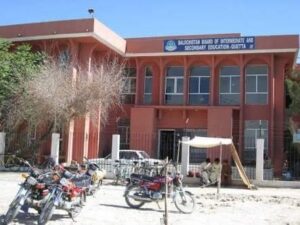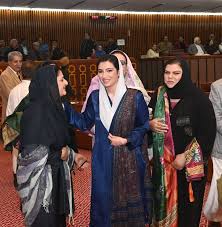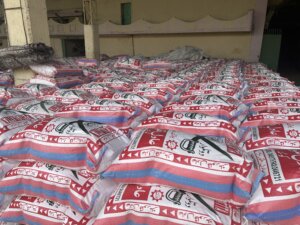Chandni Kakar
Throughout history, crisis situations, be they wars, natural disasters, or extreme economic downturns, inevitably unmask the ugly face of social inequality. Among the different types of inequality, gender-based violence (GBV), often considered a shadow pandemic, regrettably seizes these crisis situations as a breeding ground, leveraging emotions of fear and uncertainty. Strikingly, in the windswept terrains of Balochistan, a menacing overlap of climate change and GBV rises like a monstrous specter, particularly in the flood-prone areas.
Catastrophic Climatic Events and GBV-Mysterious Puppets on the Same String
Here’s the curious case: aggravated climate change, leading to increased flood events, and a rising tide of GBV are not isolated instances of social trauma but deeply intermingled phenomena in Balochistan.
Official reports show a disturbing trend 157 cases of domestic violence were reported in Balochistan in 2022, with 35 individuals being killed on the pretext of Karo Kari, half of whom were women, and 40 women becoming victims of sexual abuse.
Before this, in 2021, the number of reported cases of domestic violence was 127, with 30 women being victims of sexual violence.
In 2021, according to the Balochistan Gender-Based-Violence Case Management System, close to 3726 cases of GBV were reported. The following year, in 2022, this figure swelled to 4082, illustrating a staggering increase of nearly 9%. Digging deeper reveals an uncanny coincidence. An upward trend in extreme climate events in the same timeline correlates with this rise, painting a chilling picture. This correlation isn’t incidental but consequential, a nexus amplified by the continuous environmental changes and socio-economic fallout they induce.
Climate Change in Balochistan: More Than Just an Environmental Issue
Climate change in Balochistan isn’t calming down, like a seemingly ceaseless sandstorm it obliterates ways of life. In July 2022, unprecedented torrential rains in Quetta led to submerged communities, damaged infrastructure, and homeless families. Similarly, Naseerabad faced daunting floods in August, with farmlands, the vital backbone of their economy, laid to waste.
This consistent harsh climate rattles the socio-economic balance, where women, due to systemic patriarchy and gender biases, bear the heavy toll. Societal roles designate farming, household work, and gathering water and firewood as feminine duties, all of which become perilous with fluctuating climatic conditions.
Recent Case: An Appalling Tale from Naseerabad
Consider the heart-wrenching drama that unfolded in Naseerabad. Amidst the devastating floods, several women and girls reported being victims of horrific violence when they went out to collect clean water or seek shelter. A specific case that sounds alarm bells was that of a seventeen-year-old girl, who, seeking refuge during the floods, was brutally assaulted.
The Future: Deciphering the Complex Jigsaw Puzzle
So, how do the convoluted cogs of climate change and GBV work in unison? A deeper scrutiny suggests, that with rising environmental instability, women are forced into vulnerable situations, escalating GBV rates. Additionally, the diversion of resources and law enforcement focus to disaster relief further aggravates these incidences.
The growing climate crisis in Balochistan is more than an environmental problem. It is a socio-economic menace, a catalyst for gender-based violence, and a glaring testament to the intricate relationship between humanity and Mother Earth. A multi-faceted approach that intertwines climate strategy with gender justice is the need of the hour. The time is ripe to refine our lenses. Climate change comes not just with roaring winds but also with silent whispers of rising injustice against vulnerable sections of society.
The writer is a Balochistan-based journalist, she can be contacted @@KakarChand97707







What an outstanding explaination of climate change. This is how a writer does justice to a topic.